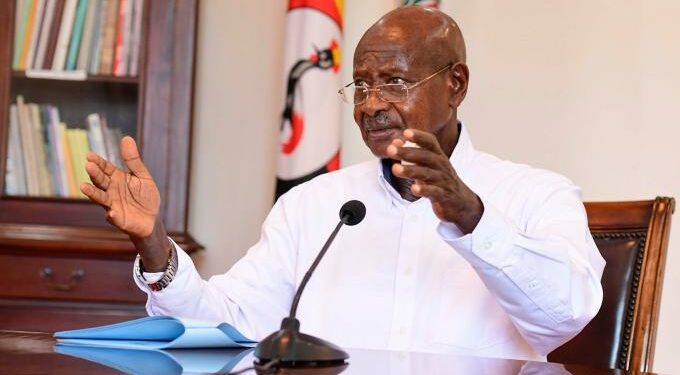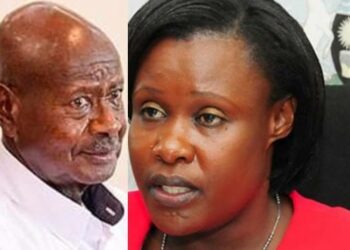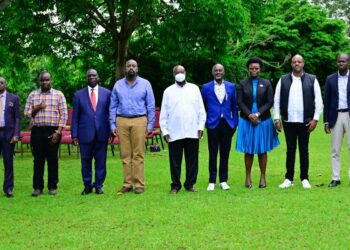As Uganda approaches the 2026 general elections, the opposition’s fragmentation, marked by the rise of new political parties and internal disunity, may bolster President Yoweri Museveni’s enduring dominance under the National Resistance Movement (NRM). Emerging parties like the Democratic Front Party and the National Unity Platform (NUP) have diluted the opposition’s strength, creating a favorable landscape for Museveni, who has led Uganda for nearly four decades.
Opposition Disunity Weakens the Challenge
The proliferation of opposition parties, each vying for influence, has fractured their collective ability to challenge the NRM’s entrenched power. Leaders like Dr. Kizza Besigye of the Forum for Democratic Change (FDC) and Robert Kyagulanyi (Bobi Wine) of the NUP have faced significant hurdles in uniting their bases. Besigye, currently detained, and Kyagulanyi have both struggled to unseat Museveni in past elections, notably in 2001, 2006, and 2021, where the NRM’s organizational strength and Museveni’s political acumen prevailed.The opposition’s lack of cohesion is compounded by emerging leaders who, seeking prominence, often align with Museveni after dialogues or negotiations. This trend has weakened opposition momentum, with some leaders reportedly prioritizing personal gain or proximity to power over unified resistance. As a result, the opposition appears increasingly fragmented, unable to mount a cohesive challenge to Museveni’s leadership.
Museveni’s Enduring Appeal
Museveni, in power since 1986, remains a polarizing yet formidable figure. Supporters view him as a transformative leader who has driven progress in Uganda’s economy, education, and infrastructure. From stabilizing the nation after years of conflict to overseeing economic growth, Museveni’s legacy resonates with many Ugandans, particularly those who have lived their entire lives under his leadership. His ability to co-opt opposition figures and maintain a loyal base further solidifies his position.Critics, however, argue that Museveni’s long tenure has stifled democratic progress and entrenched a system favoring the NRM. Yet, even detractors acknowledge his political savvy, often likening him to historical figures like King David, whose leadership was divinely ordained and enduring, as referenced in biblical narratives (1 Chronicles 23:1-2). Such comparisons underscore Museveni’s ability to project an image of indispensable leadership.
The “Muhoozi Project” and Succession Speculation
A significant subplot in Uganda’s political narrative is the potential succession of Museveni’s son, Lt. Gen. Muhoozi Kainerugaba, the Commander of the Land Forces and Senior Presidential Advisor on Special Operations. Speculation about Muhoozi’s political ambitions, dubbed the “Muhoozi Project,” gained traction after former spy chief Gen. David Sejusa accused Museveni of grooming his son for the presidency. Muhoozi has since embraced the narrative, transforming it into a platform for his political aspirations, supported by NRM loyalists and social media campaigns led by figures like events promoter Balaam Barugahara.
In a recent interview with France 24, Museveni dismissed claims of grooming Muhoozi, emphasizing that Uganda’s presidency is determined by democratic elections, not dynastic succession. Nonetheless, Muhoozi’s military credentials and public engagements have fueled speculation. Born in 1974, Muhoozi has risen through the ranks of the Uganda People’s Defence Force (UPDF), holding key roles such as Commander of the Special Forces Group. His supporters, like Rogers Bulegeya, NRM youth leader in Masaka, praise his leadership potential, citing his appeal to younger generations.
However, political analysts like Hamza Sserugunda, a former journalism lecturer, argue that Muhoozi’s political influence remains limited, particularly outside urban centers. Sserugunda suggests that Muhoozi’s reliance on social media and seasonal political activity may not resonate with rural voters, who form a significant portion of Uganda’s electorate. He advises Muhoozi to build grassroots support and consider contesting a parliamentary seat to establish broader political legitimacy.
Public Perception and Governance Challenges
While Museveni’s leadership enjoys significant support, critics highlight governance challenges, including poverty and perceived corruption, which have disillusioned segments of the population, particularly the youth. Faizo Ssebugwawo, Sembabule District Deputy Resident District Commissioner, notes that the NRM’s image suffers from Museveni’s prolonged tenure. He suggests that a shift in governance approach could restore public confidence and potentially pave the way for a leader like Muhoozi, though skepticism persists about his readiness to lead.
Conclusion: A Path to 2026
As Uganda heads toward 2026, the opposition’s disunity and Museveni’s enduring political machinery position the NRM favorably. The “Muhoozi Project,” while controversial, adds intrigue to the succession debate, with parallels drawn to biblical transitions like King David’s handover to Solomon. Whether Muhoozi emerges as a viable successor or Museveni secures another term, the NRM’s dominance and the opposition’s fragmentation will likely shape the electoral outcome. For now, Museveni’s legacy as a transformative yet polarizing leader continues to define Uganda’s political landscape.
Do you have a story in your community or an opinion to share with us: Email us at editorial@watchdoguganda.com














